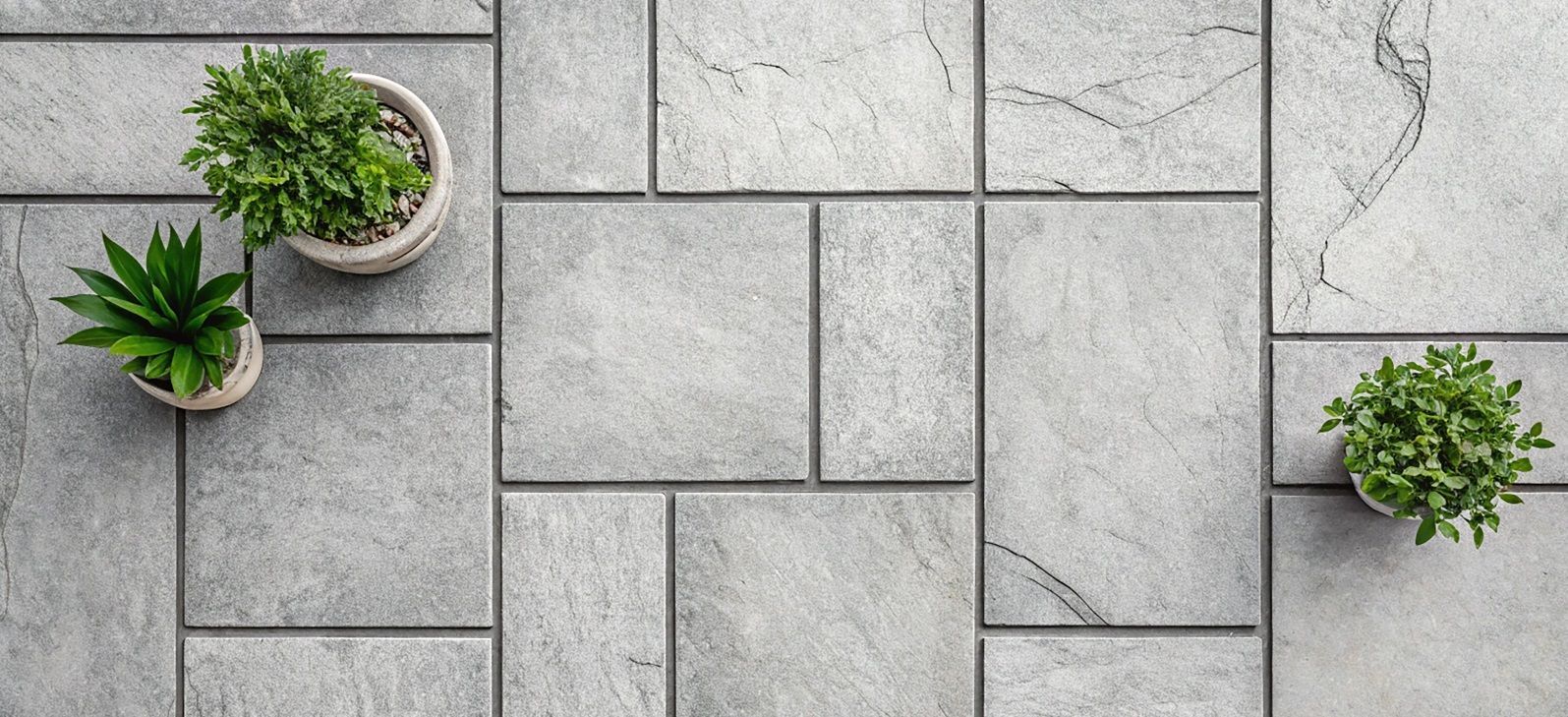The Ultimate Guide to Choosing the Right Stone Sealer for Your Floors
Stone floors are a timeless choice for many homeowners. They offer a unique blend of elegance and durability.
However, maintaining their pristine condition can be a challenge. This is where a stone sealer comes into play.
A stone sealer is a protective layer applied to the surface of the stone. It helps to prevent stains, damage, and wear, prolonging the life of your floors.
But not all stone sealers are created equal. The type of stone, its finish, and its location are just a few factors that can influence the choice of sealer.
This guide will help you navigate the world of stone sealers. Whether you have marble, granite, or another type of stone, you'll learn how to choose the right sealer for your floors.
Let's dive in and explore the ins and outs of stone sealers.

Understanding Stone Sealers
Stone sealers are essential for protecting your natural stone surfaces. They act as a barrier against moisture, stains, and wear.
Without a proper sealer, stones can easily absorb spills. This can lead to staining and even long-term damage.
Sealers come in various formulations, each suited to different types of stone. Understanding these differences is key to making the right choice.
Some sealers work below the surface, while others coat the top. Knowing how each sealer interacts with your stone helps in their selection.
It's also crucial to consider factors like porosity and finish. These can significantly impact the effectiveness of the sealer.
Ultimately, the right stone sealer can enhance both the beauty and longevity of your floors. It ensures they remain stunning and durable over time.
Types of Stone Sealers
Stone sealers come in different types, each offering unique benefits. Choosing the right one ensures your stone stays protected and beautiful.
The three main types are penetrating sealers, topical sealers, and enhancing sealers. Each has its advantages and specific uses.
Penetrating sealers absorb into the stone, providing protection from within. They're ideal for maintaining the natural appearance of the stone.
Topical sealers sit on the surface and act as a protective layer. They can add shine and are great for high-traffic areas.
Enhancing sealers highlight the stone's natural color, giving it a wet look. This type is perfect for those seeking aesthetic enhancement.
Here are key points to consider:
- Penetrating: Deep protection, invisible finish.
- Topical: Surface protection, glossy look.
- Enhancing: Color depth, vibrant finish.
Knowing these differences helps in selecting the right sealer for your needs. Consider your stone type and desired outcome carefully.
Penetrating Sealers
Penetrating sealers work by soaking into the stone's pores. They form a barrier beneath the surface.
This type of sealer does not change the stone's appearance. It maintains the stone's natural look while providing robust protection.
Use penetrating sealers for natural stones like granite and marble. They effectively repel moisture and stains without altering texture.
They’re excellent for exterior surfaces due to their durability. This ensures protection from weather and high traffic.
Topical Sealers
Topical sealers create a protective coating on the stone's surface. They offer a glossy finish that enhances the stone’s appearance.
These sealers are perfect for areas needing extra slip resistance. However, they may require more frequent reapplication.
Ideal for indoor use, they resist wear from foot traffic. This makes them suitable for entrances and busy rooms.
Topical sealers can alter the stone's color, adding sheen. Ensure compatibility with your stone before applying.
Enhancing Sealers
Enhancing sealers elevate the stone’s natural colors, offering a vibrant look. They are popular for aesthetic improvements.
These sealers penetrate like traditional ones but also enhance color. Stones appear richer and more visually appealing.
Great for decorative stone surfaces, they provide protection and beauty. They're often chosen for indoor accent areas.
Use enhancing sealers to deepen tones of stone. They bring out stunning natural patterns and color variations.
Choosing a Sealer for Different Stone Types
Selecting the right sealer depends on the stone type. Each stone type has unique properties that influence sealer choice. Understanding these differences ensures optimal protection and longevity.
Different stones require specific care and sealing solutions. Common stone types for flooring include marble, granite, and other natural stones. Using the correct sealer prevents damage and maintains their beauty.
Here's how you can choose the best sealer:
- Marble: Needs a sealer that enhances and protects its shine.
- Granite: Requires sealers that penetrate deep to prevent stains.
- Other Stones: Look for sealers suitable for the stone's porosity level.
Not all stones react the same to sealers. Assess stone condition and environment before deciding. Testing a sealer on a small area is always recommended.
The porosity of the stone helps guide your sealer choice. Denser stones may need less frequent sealing. Always consider durability and effectiveness in your selection.
Marble Sealer
Marble is porous and soft. It absorbs stains and acids easily. Hence, a penetrating marble sealer is ideal.
This type of sealer protects without changing the stone's natural look. It helps prevent etching and retains shine.
Ensure the sealer enhances beauty without adding gloss. Choose one that suits indoor settings for optimal results.
Granite Sealer
Granite is denser than marble. It requires a sealer that penetrates deeply. This helps to prevent water and oil stains.
Opt for a durable sealer, especially for kitchen areas. It provides long-lasting protection and resists heavy wear.
A proper granite sealer ensures the stone's natural pattern shines through. This retains the stone's aesthetic appeal.
Other Natural Stone Sealers
For stones like limestone or travertine, consider their specific porosity. Select a sealer based on the stone's absorption level. This ensures comprehensive coverage and protection.
Enhancing sealers highlight color in decorative stones, adding to their allure. It’s crucial for preserving their unique beauty. Balance durability with visual enhancement when choosing a sealer.
Whether it's slate or sandstone, understanding stone characteristics leads to better protection. Prioritize sealers that offer both durability and aesthetic enhancement. This ensures your stone surfaces remain attractive and resilient.

Application and Maintenance
Applying a stone sealer requires careful preparation and execution. These steps ensure a flawless finish and long-term protection. Start with a clean and dry stone surface for optimal results.
The sealing process involves several key phases. Follow these steps for successful application:
- Clean stone thoroughly to remove dirt and debris.
- Test the sealer on a small, inconspicuous area.
- Apply sealer evenly, using the recommended method.
- Allow the sealer to cure fully before use.
- Monitor the surface for signs of wear or damage.
Regular maintenance enhances the sealer's effectiveness. Clean with pH-neutral products to avoid degrading the sealer. Schedule periodic resealing based on the stone type and usage.
Safety is important when sealing. Ensure proper ventilation to mitigate fumes. Consider wearing protective gear during application for added safety.
Preparing Your Stone for Sealing
Preparation is crucial for sealing success. Begin by removing all debris and stains. This creates a clean slate for sealing. Allow the stone to dry completely before proceeding.
Use a gentle, pH-neutral cleaner designed for stone surfaces. This prevents damage to the stone prior to sealing. Test cleaners on a small spot to ensure compatibility.
Inspect the stone for cracks or chips. Repair any issues before applying the sealer. This step ensures a smoother and more effective sealing process.
How to Apply Stone Sealer
Application begins with selecting the right tools. Use a clean brush or roller for even coverage. Apply the sealer in thin, consistent layers to avoid pooling.
Work methodically, section by section, for a uniform finish. Start from one corner, moving systematically across the surface. This approach reduces the chance of overlapping and streaks.
Ensure you follow the manufacturer’s instructions closely. Different sealers may have varying application techniques. Adhering to guidelines maximizes effectiveness and longevity.
Be patient during the process. Allow the sealer ample time to penetrate and cure. Avoid walking on the surface until it’s fully set.
Completing the application correctly saves time and resources long-term. A properly sealed floor resists stains and wear more effectively.
Aftercare and Resealing
Aftercare is key to extending your stone floor's life. Clean spills promptly to preserve the sealer's integrity. Routine cleaning helps maintain the protective layer.
Monitor high-traffic areas for signs of wear. This indicates when resealing might be necessary. Addressing wear early prevents more significant damage later.
Plan for periodic resealing based on usage and type of stone. Adhere to a resealing schedule for sustained beauty and durability. This keeps your stone floor looking its best over time.
Environmental and Health Considerations
When choosing a stone sealer, consider its environmental impact. Opt for sealers with low volatile organic compounds (VOCs). These products emit fewer harmful chemicals.
Health is also a priority during application. Ensure the space is well-ventilated to reduce fume inhalation. Use protective gear, such as gloves and masks.
Additionally, verify that the sealer is safe for indoor use. This is crucial if children or pets are present. Selecting eco-friendly sealers supports both health and sustainability goals.
Cost and Longevity of Stone Sealers
The cost of stone sealers varies widely, depending on the type and brand. Generally, high-quality sealers are more expensive, but they offer better protection and longer life.
Longevity depends on factors like the stone type and foot traffic. A good sealer might require reapplication every few years.
Investing in a quality stone sealer can save money long-term. It reduces damage and maintenance costs, preserving your floor’s beauty and durability.
Debunking Common Myths About Stone Sealing
Many believe that all stone floors do not need sealing. However, most natural stones are porous and benefit from a proper sealer.
Another misconception is that sealing stone is a one-time task. In reality, sealers wear off and require regular reapplication to remain effective.
Lastly, some think sealers alter stone color. While enhancing sealers can change appearance, many sealers are designed to maintain the stone's natural look without affecting its color.
Conclusion and Final Tips
Selecting the right stone sealer with Oceancare Products Store’s Intensive Stone Cleaner Concentrate ensures your floors remain beautiful and protected. Always follow manufacturer guidelines for best results. Regular maintenance using our premium products can prolong the sealer's effectiveness and keep your floors stunning.
Contact us if you have any questions about our Intensive Stone Cleaner Concentrate or any of our other stone care products. Our expert team is here to help you maintain the beauty and longevity of your stone surfaces.


